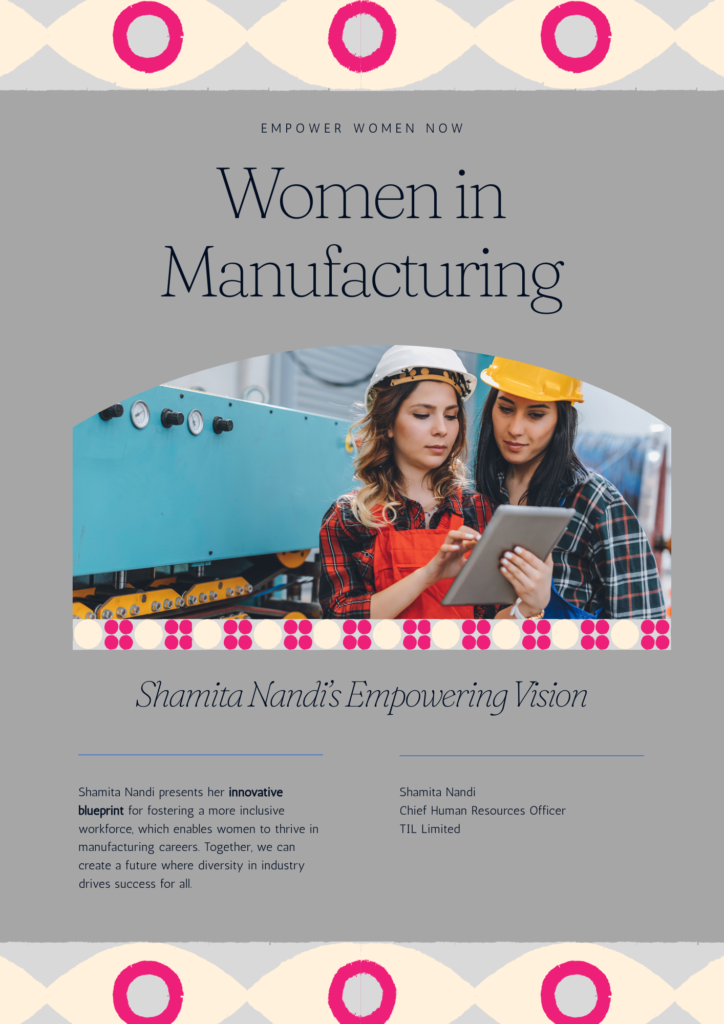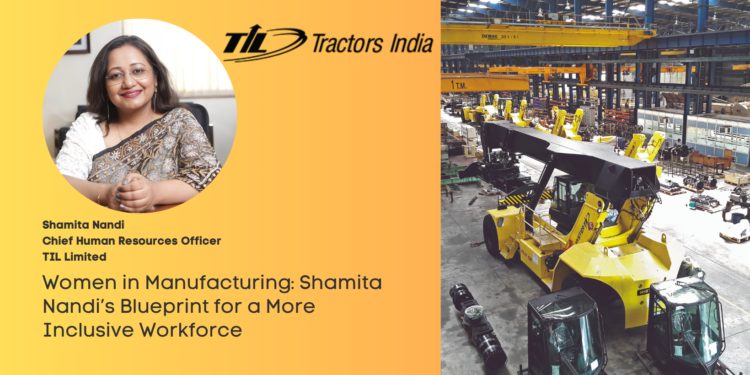Over the past decade, organizations have increasingly recognized the importance of a diverse workforce in driving productivity. Structured DEI (Diversity, Equity, and Inclusion) blueprints are becoming the norm, with discussions peaking around Women’s Day as companies introspect: “Have we done enough?” and “Should we continue to push this agenda?”
In India, achieving diversity and inclusion in manufacturing has been particularly challenging. While most organizations have a POSH (Prevention of Sexual Harassment) Committee, the more pressing question remains: “Are there enough women in the workforce, including in factories?” Currently, women make up only 20% of the manufacturing workforce, with a significant portion concentrated in electronics manufacturing. As the sector expands and the demand for skilled workers grows, it is imperative to address the skill gap and encourage greater female participation on factory floors.

For organizations committed to fostering gender diversity, the following steps are essential:
- Leadership Involvement
- A Diverse Management Team
- Infrastructure Readiness
- A DEI Blueprint Aligned with Business Strategy
Involvement at the top is the first step for this agenda to thrive. More often it has been seen that as more and more sensitization programs are done for the senior management, need and addresses individual unconscious bias to create a culture of inclusivity. In our organisation one of the turning point was a pledge by the senior leaders reaffirming our commitment to make TIL a more gender diverse and sensitive organization that ensures complete physical and psychological security to colleagues of all genders.
Another key thing is to have more women get seat at the leadership table. For example, traditionally it has been conceived that women are seldom seen to manage industrial relations and labour dynamics but that did not deter my organisation to look beyond gender defined roles when hiring me and handing me the mantle to lead Women in Manufacturing for us.
As organisations take giant strides to welcome more women colleagues, they need to concentrate on the basic needs ensuring the necessary infrastructure and support for the same which includes making provision for hygienic washroom, restroom and pick up and drop facilities, creche etc. These may seem hygiene factors but still very relevant to set up these facilities prior committing to bring in more women in your shopfloor. Effort is also needed to make necessary physical changes to the shopfloor like workstation heights, redesigning lights and tools and also it is always a good idea to explore robotics. Interestingly robotics does not only contribute to have a more diverse workforce but has a direct positive correlation to productivity.
Lastly, your commitment to increase the fingerprint of women colleagues in our products leaving the plants should be aligned to business strategy. For example, in the heavy equipment sector, there is a significant shortage of female service engineers. Recognizing this, we have focused on training women apprentices within our plants to prepare them for field roles. Research data has proved that having a diverse workforce boosts bottom line , innovation and helps a faster adoption to new technology. In the era of Industry 4.0, embracing workforce transformation is not just beneficial—it is essential.
While some major U.S. organizations are scaling back diversity initiatives due to evolving federal guidance, India is still warming up to the vast possibilities of a more inclusive workforce. The time is now to build on this momentum and ensure that the future of manufacturing is diverse, equitable, and innovative.
Established in 1944, TIL Limited is a leading Indian manufacturer of material handling and infrastructure equipment. Headquartered in Kolkata with a pan-India presence, TIL is renowned for its robust, high-quality products and innovative design. The company operates two state-of-the-art manufacturing facilities in Eastern India, equipped with cutting-edge R&D centres. TIL serves diverse industries including material handling, construction, mining, and defence, among others. With ISO 9001:2015 certification, TIL maintains global quality standards and has strategic alliances with international industry leaders. For eight decades, TIL has been an integral partner in India’s infrastructure development, combining skilled artisanship with a commitment to corporate social responsibility.
Read Also : HR Is Not a Support Function—It’s the CEO’s Most Powerful Growth Engine
The Fine Balance: Navigating Work, Life, and Mental Wellbeing













